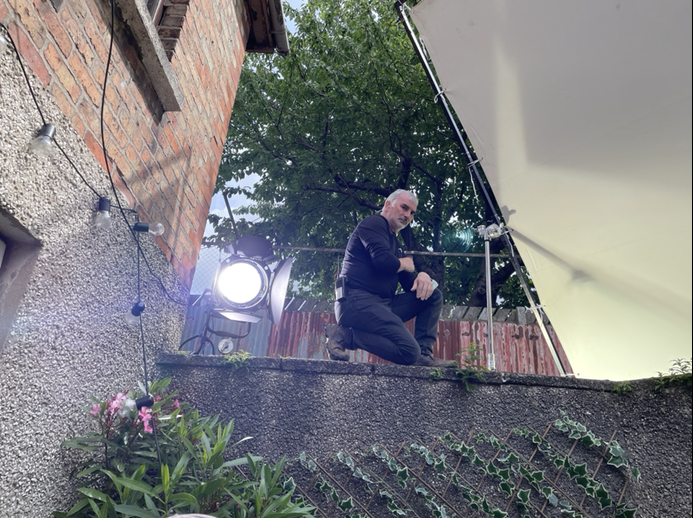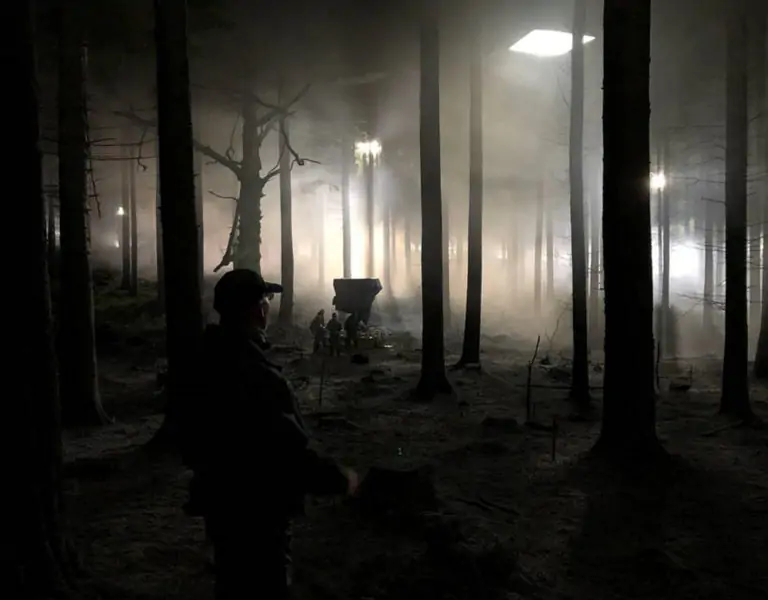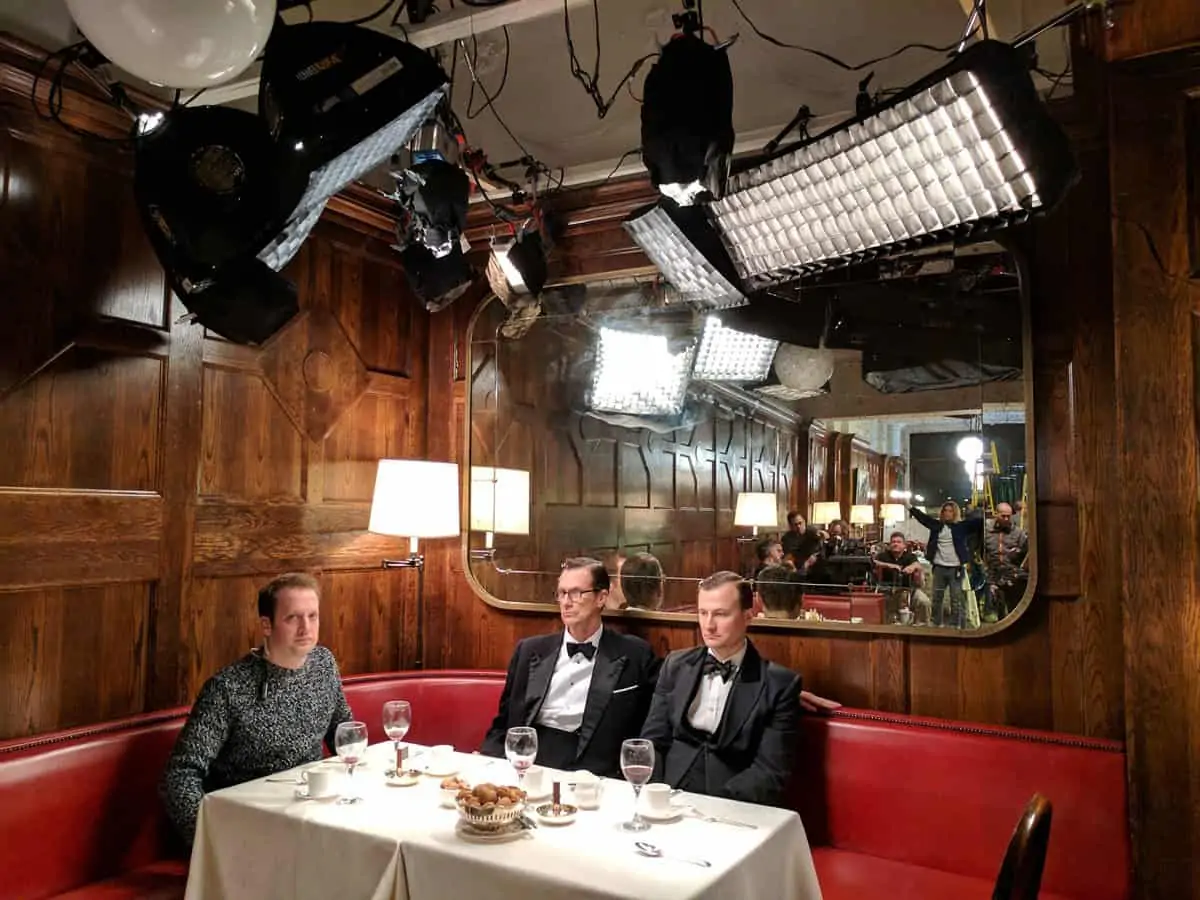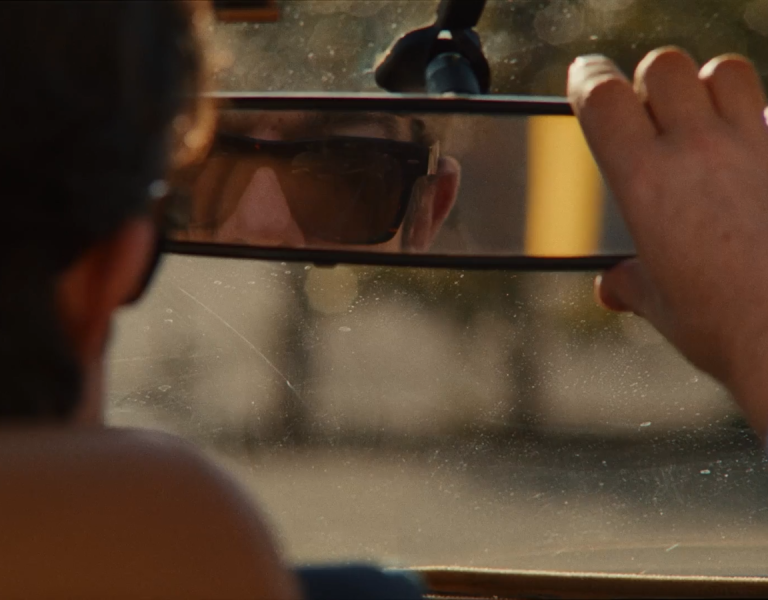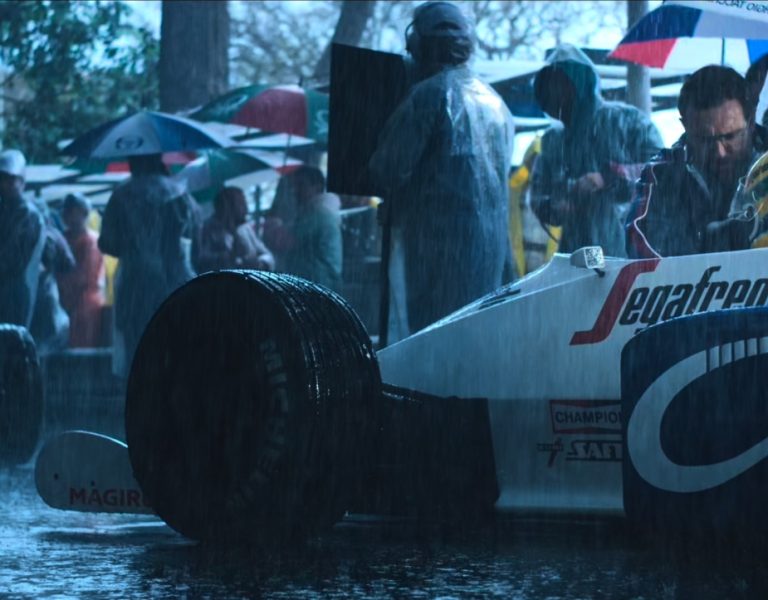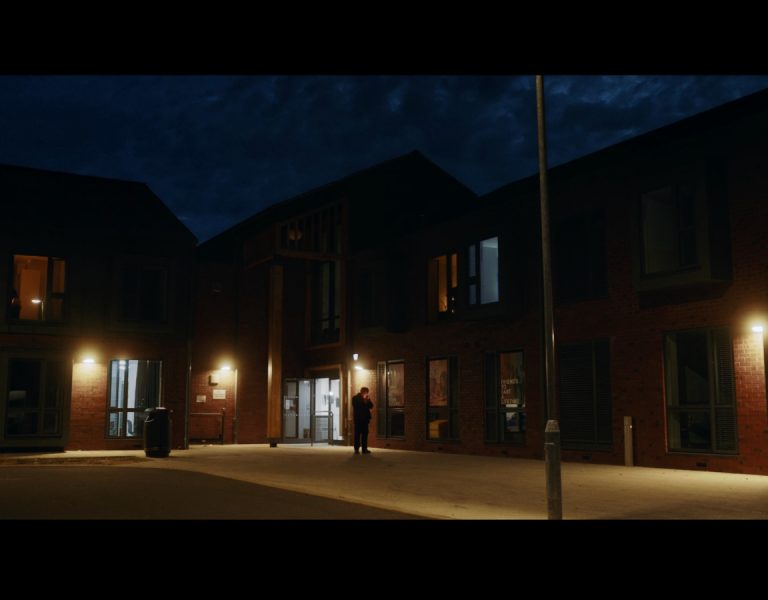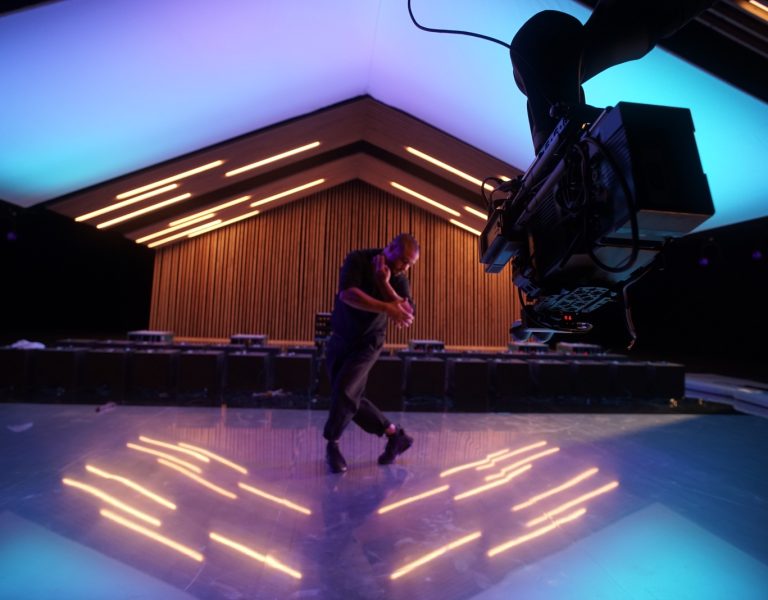SPARKING JOY
Selected filmography as gaffer:
Bardo, False Chronicle of a Handful of Truths (2022)
Hausen (2020)
The Operative (2019)
Berlin, I Love You (2019)
In the Aisles / In den Gängen (2018)
Sanctuary (2016)
Tell us about your way of working.
I like to work with the DP as part of a ‘creative partnership’, planning ahead, and thinking of solutions to situations which are described in the screenplay. Supporting the visual concept with ideas and technical solutions.
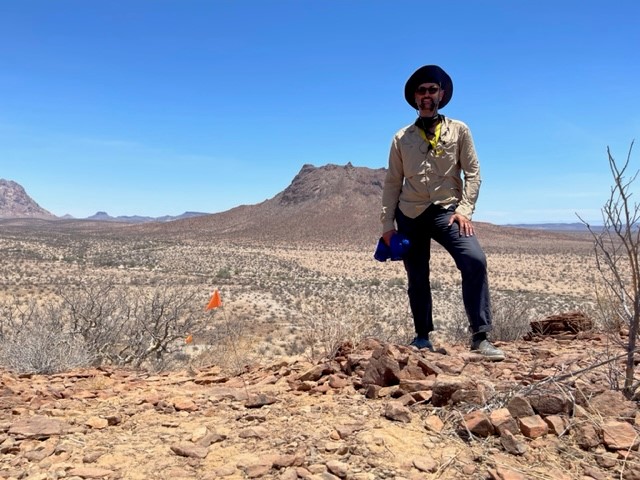
How and where did you learn the craft?
My whole career started with a twist of fate in Hamburg. During my media technology studies, I was able to get on a film set and I fell in love with it.
My first job was in the electrical department as an electrician’s assistant. It was a bit tricky to learn about all the gear and set behaviour but hey – I loved it. Now, I’m more than happy that my son is following me into the business too.
Who were your biggest inspirations or mentors?
Harald Groepler was an older electrician who taught me all the basics and became a friend. Having a good ‘teacher’ is so important to understand all the technical basics. The British/German system that I work with most of the time is really complex when you’re starting out; it’s not just about light, power and electricity, but there are aspects of sailing, rigging and programming too.
I’ve had the chance to work with a couple of very talented gaffers with different styles and different workflows, and working with them helped me to create my own style.
Of course, there’s every DP I’ve worked with too. You can learn something every day on every set.
What was your big break?
Inglourious Basterds (gaffer: Ian Kincade/German gaffer: Helmut Prein) – it was the biggest international movie I’d worked on as an electrician at that point. These fantastic gaffers opened up the world of moviemaking on another level and taught me a lot. It’s great to work with people like them. Once in a while, I miss not being able to have a chance to ‘be a mouse’ on a colleague’s set, just to see how the workflow is over there.
What are the key qualities of a star gaffer?
I don’t like the phrase ‘star gaffer’ – it’s a team sport so my team is the star and without your team you are lost.
The most important things are communication and timing with the:
- DP
- Art department
- Production
“Verlässlichkeit, versprich nicht was Du nicht halten kannst.“ (Reliability, don’t make promises you can’t keep.)
We all are living in our own universe and have varying ideas and tastes, and any problem can be solved with the right communication at the right moment. I try to be as close as possible with the art department and location department; from the moment the show starts running and principal photography begins, these departments often are the best info points regarding upcoming or changed information.
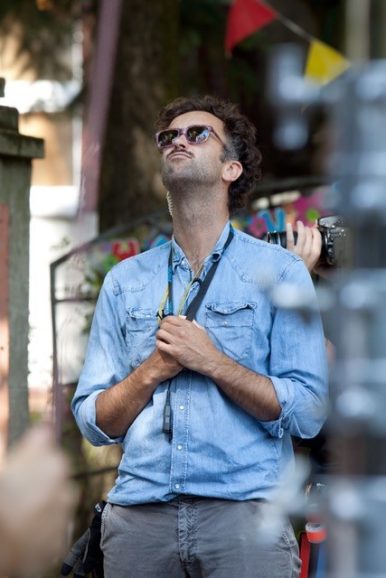
What are the fundamentals of a successful gaffer/DP relationship?
Having good communication, having a similar taste (it helps the workflow), and being reliable.
Who are your regular crew?
Dimmerboard operators: Lukas Hippe, Sulev Rikko
Best boys: Felix Weddige, Christof Grunz, Michael Koch
Electricians: Philipp Lange, Erik Wenndorf, Miklos Endres, Julian Weston
How would you describe your creative process?
After reading the script and having some spontaneous ideas, I like to speak with the DP and have a conversation based on the script. I’ll watch some reference movies too.
I like to collect as many pictures/moods as possible for special situations, moments or feelings to have a visual base to discuss the DP’s visions and ideas. It helps us to understand each other!
What is your favourite memory of working on a production and why?
Walking with Darius Khondji (ASC AFC) through Mexico City and discussing moments of the script and taking pictures of the Mexican sun. It was the perfect moment; we absorbed the city and the Mexican soul and had this wonderful script in mind to talk about.
Which production was the most challenging and why?
Bardo. The script was already a masterpiece, and I enjoyed every line of it. The situations had been written so precisely – regarding the lighting as well – I got the idea and started to think about (technical-based) solutions immediately or had a big question mark in my notes. Creating a weather change from a sunny afternoon to a rainy afternoon with 1) real rain and 2) lightning strikes, 3) in 12 minutes 4) in a one-shot 5) on the stage was an interesting, tricky challenge to solve.
What is your favourite bit of kit?
The ‘old fashion’ tungsten lights are still unbeatably beautiful, but the LED lights offer us a bunch of opportunities to easily change the intensity and colours. I like to use these opportunities.
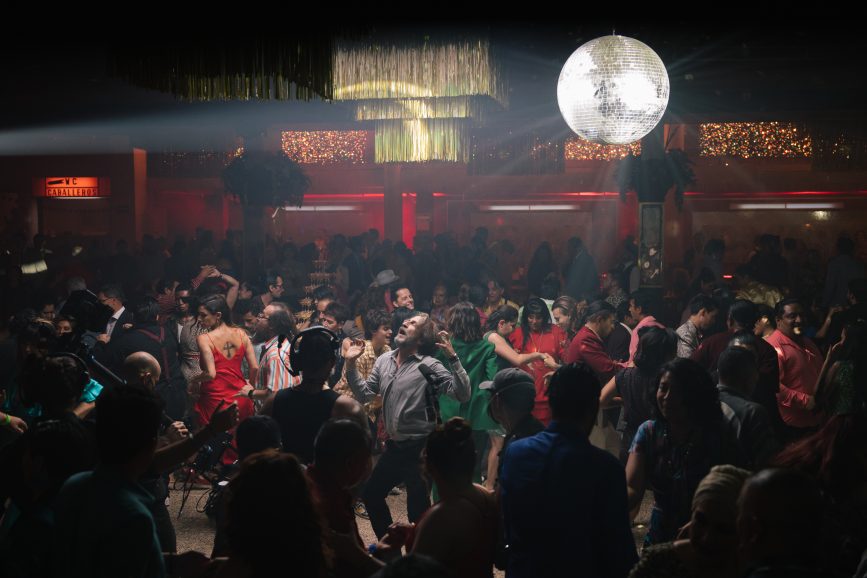
What are the biggest changes you’ve seen in the industry during your time as a gaffer?
LED full colour range – adjusting lights in terms of colour and intensity is a daily business now. Having little light effects, moving shadows, coloured lights are often requested and easier to create.
The battery technique, no longer fighting with converters and car batteries and charging them… In combination with the LED lights, this is another major improvement.
What advice would you give aspiring gaffers?
Follow your passion! Do not stop learning.
What inspires you outside of the film world?
The artwork of my friends and the ‘Old Masters’ of photography and painting, as well as installations and performances. It helps me to leave the bubble of the movie business behind and focus on something else. A good movie should combine a little bit of all of them.
Cinematographer Darius Khondji ASC AFC says…
Thorsten is a wonderful and talented gaffer. I was very lucky to meet and take with me in Mexico on Bardo. He came with his excellent desk operator Lucas from Germany too. He created a great dynamic and organised a great crew for us.
Thorsten is a great team player and very organised with his crew. He is someone ideal to bring on a movie far away to work with foreign teams. He is very sociable and has a great eye and spirit on a movie. I would work with him anytime he is available.
Cinematographer Jalaludin Trautmann says…
Thorsten’s presence on and off set is a wonderful gift to your craft and soul. It’s calming, supporting and holds a variety of ideas, technical and practical. He takes your thoughts and often makes them more practical or enhances them artistically. He gives you confidence knowing everything you talked about is there and he has different options. I feel lucky working with a collaborator that you also call family.
Cinematographer Peter Matjasko says…
I had the privilege of experiencing a truly remarkable working relationship with my colleague and friend, Thorsten Kosellek. Together we’ve transitioned from commercials to feature films and streaming.
In him I’ve found a partner to elaborate with on the aesthetic concepts of our projects, outside of pure technical problem solving. The “why” we would do something instead of solely focusing on how to achieve it.
Working with him always created a sense of liberty and freedom for me, knowing that he and the fantastic crew he’s always surrounded by will make it work. I would never have to worry too much about the details, because he would have thought of it ahead of me. Because he understands film and filmmaking, beyond his masterful technical abilities.
He is an incredible friend and I’m grateful for every opportunity to have worked alongside with him.

